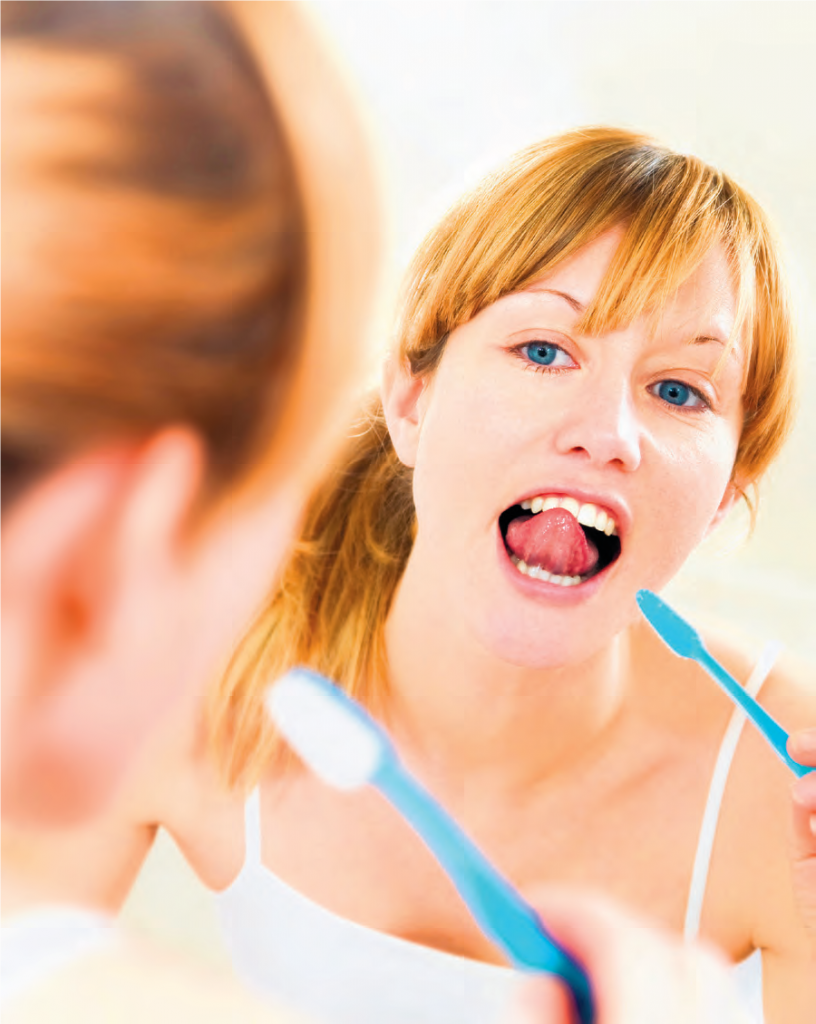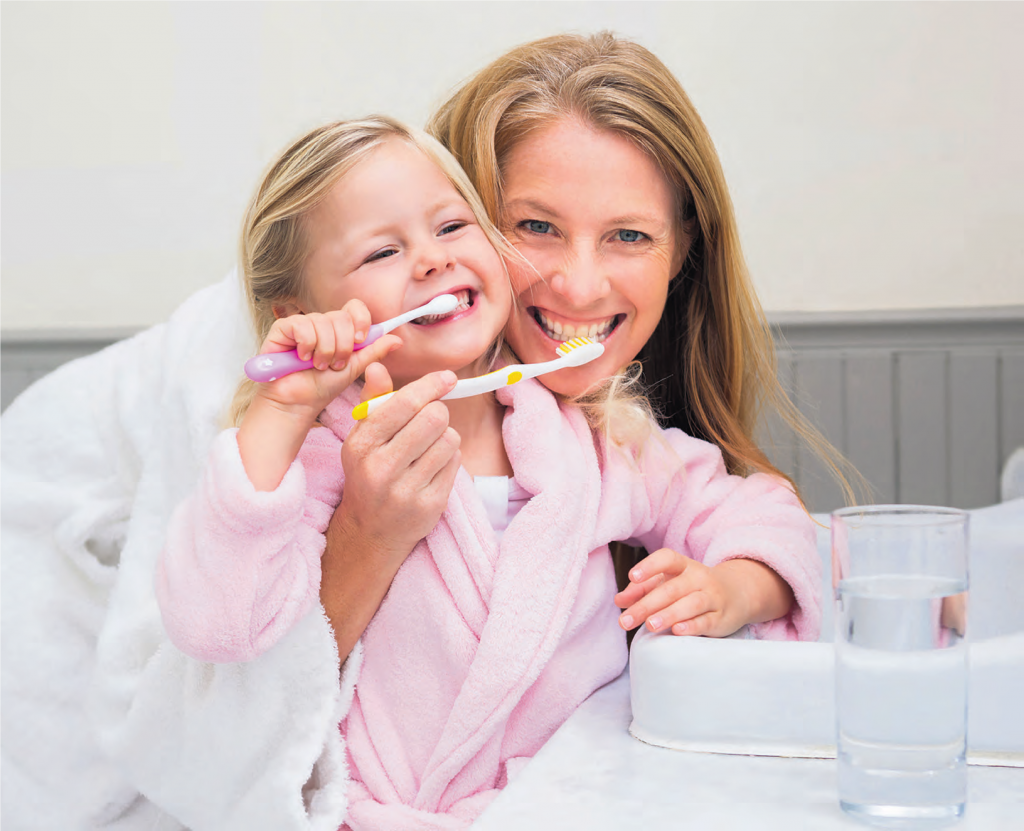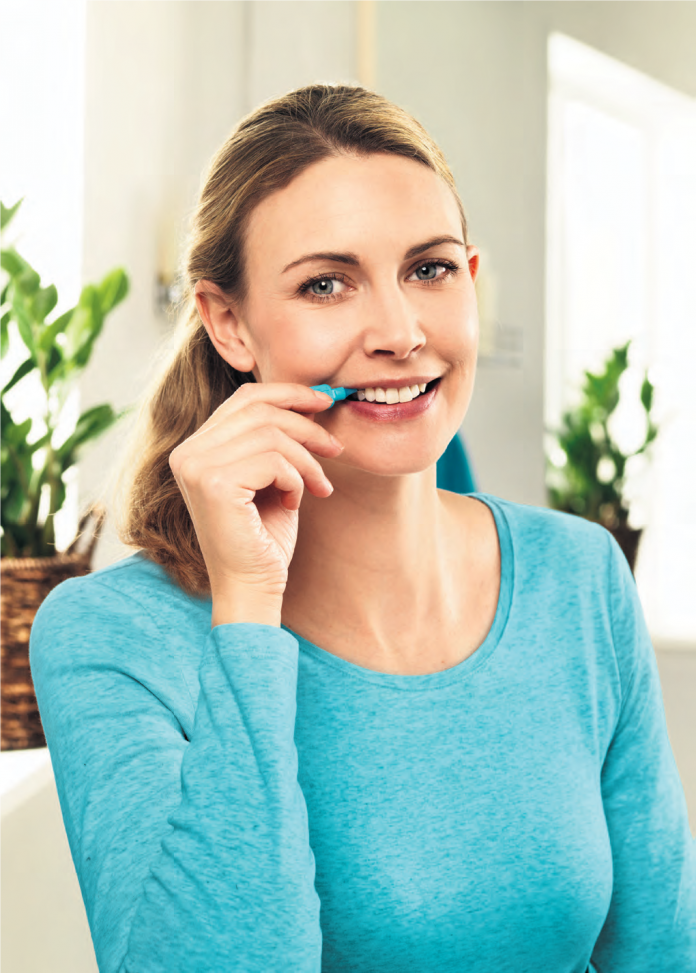Keeping a Smile Healthy
By Elaine Tilling MSc DMS RDH FAETC MIHPE, BSDHT Publications Committee, Education and Project Manager TePe Oral Hygiene Products Ltd
Oral health is inextricably linked to our overall health and wellbeing and so keeping a healthy smile is not just about our teeth.
Data regularly captured by the Oral Health Foundation reports that ‘Keeping a Healthy Smile’ is important to the majority of us. If oral health is what we aspire to, why do we still have a 24% decay rate in our under-fives in the UK? Why is gum disease the most common cause of tooth loss in adults when both of these dental diseases are largely preventable?
We all clean our teeth… don’t we? Twice a day for two minutes with toothpaste that contains fluoride to help protect our teeth from decay…we know this, don’t we? We also all know that dental diseases are largely preventable…don’t we? What we may not ‘know’ is that the spaces in between the teeth where most dental decay and gum disease starts does NOT get cleaned with a toothbrush. A toothbrush cleans only 60% of the tooth surface leaving 40% uncleaned if you do not use interdental cleaning aids. Floss for the smaller spaces and interdental brushes for the larger spaces are the only way to remove the disease promoting bacteria from these tricky spaces between your teeth.
Research into health does and shouldchange some of the advice that health care workers give. Dental flossing received some negative press coverage last year when the results of the 2015 European Workshop on gum disease concluded that floss was not effective in all cases. It did not say it was not effective at all, which was what was reported by some. If the spaces in between the teeth are large enough for an interdental brush to fit, they will clean far more effectively than floss can in these areas.
 To prevent dental disease, we need more education. Education on diet and basic tooth cleaning for children and their parents and for adults as they live increasingly longer with more of their natural teeth. With almost two decades of an NHS dental service largely geared to the treatment of disease and not its prevention, the pendulum is starting to swing back towards prevention of dental diseases. Dental Hygienists and Dental Therapists are at the forefront of this paradigm shift. A Dental Hygienist is a member of the dental team who
To prevent dental disease, we need more education. Education on diet and basic tooth cleaning for children and their parents and for adults as they live increasingly longer with more of their natural teeth. With almost two decades of an NHS dental service largely geared to the treatment of disease and not its prevention, the pendulum is starting to swing back towards prevention of dental diseases. Dental Hygienists and Dental Therapists are at the forefront of this paradigm shift. A Dental Hygienist is a member of the dental team who
is trained to treat gum diseases but essentially help patients prevent both gum disease and tooth decay. In addition to this, the Dental Therapist can undertake fillings in both adults and children and tooth extractions in children if necessary. Many Dental Hygienists and Dental Therapists hold a dual qualification. These two members of the dental team are largely trained and dedicated to helping individuals to understand and prevent dental disease, or control disease already present.
You don’t necessarily need to see a dentist before going to see a Dental Hygienist as many practising Dental Hygienists now do so under direct access, which means that you can make an appointment directly with your Dental Hygienist for your preventive care. Dental Hygienists are trained to recognise disease that only a dentist is qualified to treat. They will refer you back to your dentist if you need further treatment that does not come under the current scope of practice of your Dental Hygienists. Direct access has now been available in the UK for four years, so give your dental practice a call to see if this is possible for you.
Oral health is achievable for all. Dental Hygienists and Dental Therapists aspire to helping patients keep their teeth and gums healthy, comfortable, functional and looking as nice as possible for all of their lives.
ORAL HEALTH IN CHILDREN
It is shocking that the most common reason for our under 5 year olds being treated under a general anaesthetic in the UK is for tooth extraction because of tooth decay. Hidden sugars in foods and drinks all add to the known sugars in snack foods that have become part of our on the go culture. Sugar is not bad in itself, it is the frequency of intake that does the damage to the teeth. Confining sugar containing foods and drinks to meal times and ensuring children brush for two minutes, twice daily with a fluoridated toothpaste is the key. Children under 5 cannot clean their teeth adequately on their own, they need parental help. Your Dental Hygienists and Therapists can guide and help you overcome what can be a battleground in the bathroom – make a family appointment and ask for some advice. Baby teeth need to be looked after as they save the space for the adult teeth, if they are lost prematurely to disease, your child is likely to have problems with their adult teeth. You can prevent this with help from your Dental team.

ORAL HEALTH IN ADULTS
The days of expecting to lose most of your natural teeth in older age are thankfully over. Technological advances in dental materials and techniques means that we can save teeth and even replace with implants, however everything that is placed in the mouth to improve or replace natural tooth substance needs to be kept clean in the same way as our natural teeth, or they will fail.
As we live longer, we all face the challenge of maintaining our gums and teeth and any dental work at a time when our dexterity might be reducing due to degenerative conditions such as arthritis. Additionally, the increasingly complex number and types of medication that older people take to address medical conditions can also cause various problems in the mouth. Many commonly used drugs give rise to a dry mouth – saliva is hugely important to a healthy mouth as it helps keeps your gums in good condition and has a role in helping to prevent tooth decay.
There are dental products and techniques for maintaining oral health that your Dental Hygienist or Dental Therapist can help you to choose, adapt if necessary and use effectively. No one product or technique works for everyone and so your Dental Hygienist or Dental Therapist will be able to help you to find products and techniques that will suit you. Maintaining an effective and comfortable dentition is down to the individual, in the bathroom every day, ensuring that they remove the daily build of plaque that contributes to disease, and sticking to a healthy diet and lifestyle. These are all things that your dental professionals can help you establish and achieve. Go on, make an appointment today to keep your smile healthy.








